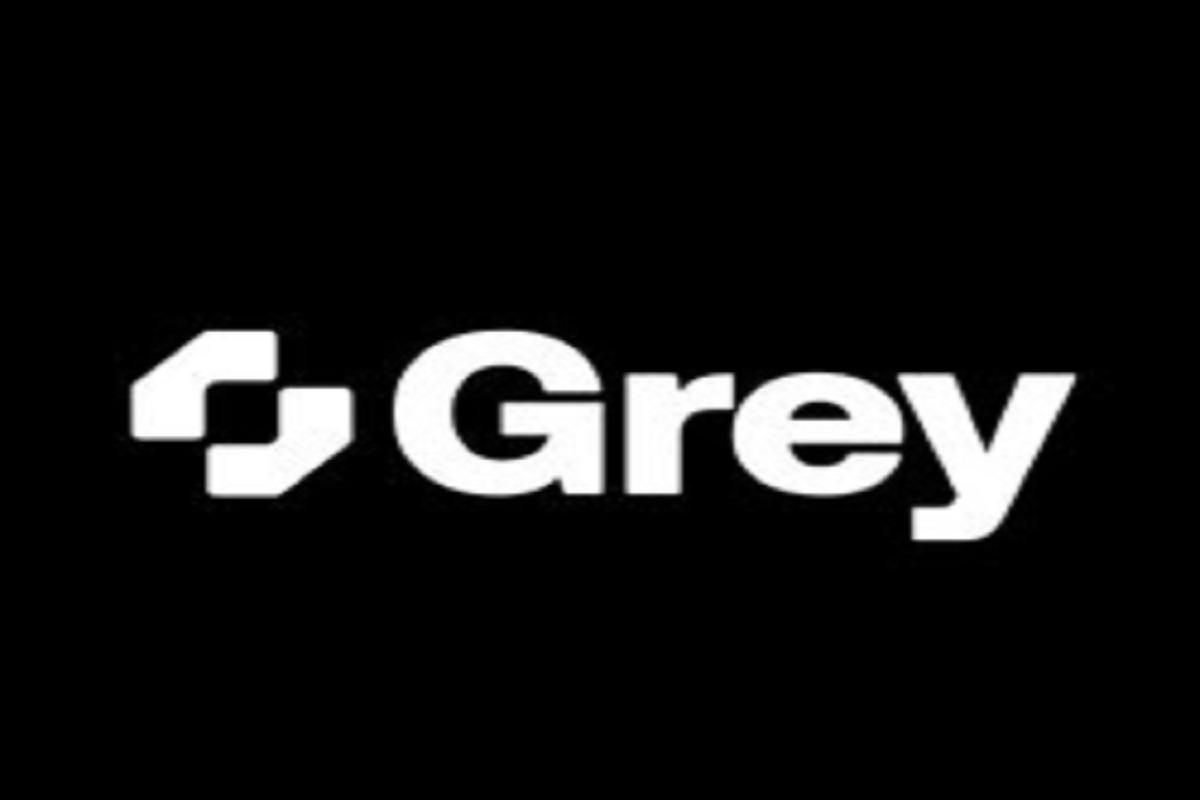Telecom
Zoho Workplace Reimagines Work, Brings Business Context to Productivity Apps

Zoho Corporation has announced major updates to it’s Workplace — a single software platform that brings together collaboration, productivity, and communications tools and integrates them into other business processes.
Created around a business mail and cloud office suite, Zoho Workplace comprises nine integrated applications, built on a common data model and unified through search and AI across a single dashboard, allowing customers to solve business problems quickly and collaboratively.
Productivity platforms from leading vendors today posture to bring about collaboration within teams, even though they are disconnected from other business apps and therefore lack any awareness of the underlying business issue being addressed. Thus, they are unable to establish critical context for business problems, and fail to provide continuity over the course of their resolution.
Andrew Bourne, regional manager, Africa, Zoho, Said, “The nature of work has undeniably changed, and Workplace has grown to meet that change.
“Businesses don’t want to solve a collaboration problem, they want to solve a custom invoicing problem or sales enablement problem or support problem.
“Collaboration platforms need to facilitate better business outcomes, not just improve productivity.
“Workplace stands alone in having the vision and functionality to meet the broad business needs of today.”
Thanks to its ability to provide these solutions, Zoho Workplace has seen rapid growth over the last quarter.
It now supports 2 million organisations, with 15 million users located across more than 150 countries. More than 25% of new Zoho Workplace customers have made the decision to switch over from competitive offerings.
The updates to Workplace include:
Contextual Communication
Mail (Business Mail) – Users can now make audio or video calls from within the app, edit document attachments in Zoho Writer, meet online with contacts, and access all email accounts from within Zoho Mail. Mail includes a comprehensive control panel with eDiscovery, Backup and Recovery. The app comes with mix ‘n’ match plans, flexible storage, and an extensive Integration platform, as well as S/MIME certificates, MFA, email rules, unusual login alerts, and custom spam controls.
Cliq (Messaging) – Users can check in or check out and set custom statuses, collaborate with external stakeholders, connect with teams via group audio or video calls, and view message-read status. Cliq comes with module-level configuration and customization, role-based permissions and integration with EMM providers, as well as user-based availability reports.
Meeting (Conferencing) – Users can schedule recurring or one-off meetings and set multiple email reminders from web and mobile devices. Now supporting 16 languages, Meeting is integrated with Zoho Projects, Bookings, CRM, and others.
Continuity
Connect (Social Intranet) – Connect integrates with human resource information systems, including Zoho People. Zoho Connect users can moderate content and modules with fine-grained permissions and user policies and custom domain and SAML-based SSO.
Writer (Word Processing) – Users can convert documents to fillable forms, restrict comment visibility, gather document engagement insights, and enable a powerful AI-based writing assistant. Writer features template-driven automation and APIs, form-driven automation, and automatic signature and approvals.
Convenience
Show (Collaborative Presenting) – Show is integrated with Atlassian, Unsplash, and Humaans, and features an organization-wide slide library and data linking, allowing users to connect live data to slides.
Sheet (Spreadsheet) – Users have access to the latest functions for lookup and match and can visualize historic data with race charts, create drop-downs with predefined values, and link cell ranges using IMPORTRANGE. Sheet enables users to track changes while collaborating, gain insights, maintain clean data, convert images to spreadsheets, and bring contextual data from both Zoho and non-Zoho applications.
WorkDrive (Cloud Document Management) – WorkDrive now features unified search and TrueSync, which allows users to access files without worrying about hard drive space. WorkDrive is equipped with a comprehensive admin panel, customer reports to monitor team activity, and is integrated with Zoho Directory.
ShowTime (Online Training) – ShowTime supports branding and white-labelling. Users can set roles and privileges for their training team and gather training insights.
Pricing and Availability
Pricing starts at NGN 780/ user/ month for the Standard version and NGN 1560/ user/ month for the Professional version.
Zoho Workplace ensures a level of confidentiality that no other vendors in the industry can guarantee. Zoho does not allow any third-party trackers to monitor usage behaviour and never sells any data to ad-based companies. Because Zoho owns and has built its entire technology stack, the company is able to offer the most secure experience to its 50 million users without any compromise on data privacy. Zoho Workplace users have the assurance that their data is confidential and protected, and only users themselves maintain ownership of that data.
Telecom
Sophos Report: Identity Attacks Drive 67% of Cyber Incidents as Threat Groups Surge in 2025

Sophos, a global leader of innovative security solutions for defeating cyberattacks, today released the 2026 Sophos Active Adversary Report.

John Shier
It reveals that 67% of all incidents investigated by Sophos Incident Response (IR) and Managed Detection and Response (MDR) teams last year were rooted in identity-related attacks.
The findings highlight how attackers continue to exploit compromised credentials, weak or missing multifactor authentication (MFA), and poorly protected identity systems, often without needing to deploy new tools or techniques.
Key findings include:
- A shift from exploited vulnerabilities toward compromised credentials, with brute-force activity (15.6%) drawing almost level with exploitation (16%) as an initial access method
- Median dwell time declined to three days. This was driven by attackers’ movements, but also by defenders reacting more swiftly. This was particularly notable in MDR environments.
- Attackers are getting faster at reaching Active Directory (AD). Once an attacker is inside an organization it takes them just 3.4 hours to get to the AD server.
· Ransomware remains a firmly off-hours activity. 88% of ransomware payloads are deployed out of hours, and 79% of data exfiltration actions take place out of hours, emphasising the continued need for 24/7 coverage.
- Lack of telemetry undermines defense efforts. Missing logs due to data retention issues doubled over last year. This rise was largely driven by firewall appliances where the default was only seven days, and in some cases, 24 hours.
Identity Attacks Accelerate While MFA Gaps Persist
The report shows a continued rise in attacks rooted in identity compromise, including stolen credentials, brute-force activity, and phishing.
While exploited vulnerabilities remain a factor, attackers increasingly rely on valid accounts to gain initial access, allowing them to bypass traditional perimeter defenses.
There was also a lack of MFA in 59% of cases, facilitating the abuse of stolen and compromised credentials to penetrate an organization.
“The most concerning finding in the report has actually been years in the making: The dominance of identity-related root causes for successful initial access.
“Compromised credentials, brute-force attacks, phishing, and other tactics leverage weaknesses that can’t be addressed by simple patch hygiene. Organizations must take a proactive approach to identity security,” said John Shier, Field CISO and lead author of the report.
More Threat Groups, Broader Risk
Sophos researchers observed the highest number of active threat groups recorded in the report’s history, expanding the overall threat landscape and increasing the challenge of attribution.
- Akira (GOLD SAHARA) and Qilin (GOLD FEATHER) were the most active ransomware brands observed, with Akira dominating across 22% of incidents
- 51 ransomware brands appeared across cases, including 27 returning brands and 24 new ones
- Only four brands or techniques, LockBit, MedusaLocker, Phobos, and abuse of BitLocker, have persisted continuously since 2020, the first year of Active Adversary Report data
“Law enforcement action continues to cause disruption in the ransomware ecosystem. Although we still see activity from LockBit, the dominance and reputation it once had has clearly been impacted.
“However, it means we are seeing a raft of other groups vying for dominance and many more emerging groups. For defenders, it’s important to understand the groups and their TTPs in order to best protect your organization,” continued Shier.
AI Hype Meets Reality
Despite widespread predictions, Sophos found no evidence of a major AI-driven transformation in attacker behavior. While generative AI has increased the speed and polish of phishing and social engineering, it has not yet produced fundamentally new attack techniques.
“AI is adding scale and noise but not yet replacing attackers. While in the future GenAI could be the next accelerator, right now the fundamentals still matter: strong identity protection, reliable telemetry, and the ability to respond quickly when something goes wrong,” said Shier.
Defensive Takeaways
Based on the findings of the 2026 Active Adversary Report, Sophos recommends organizations:
- Deploy phishing-resistant MFA and validate its configuration
- Reduce exposure of identity infrastructure and internet-facing services
- Patch known vulnerabilities promptly, especially on edge devices
- Ensure 24/7 monitoring through MDR or equivalent capabilities
- Preserve and retain security logs to support rapid detection and investigation
The 2026 Sophos Active Adversary Report analyzed 661 IR and MDR cases handled between November 1, 2024 and October 31, 2025, spanning organizations across 70 countries and 34 industries.
You can read the full report here[SE1] . https://www.sophos.com/en-us/blog/2026-sophos-active-adversary-report
Telecom
Grey Expands Cross-Border Banking with USD Accounts, USDC Support

Grey, a cross-border payments provider, has rolled out USD business accounts, bulk payments, and USDC stablecoin integration on one platform to streamline international transactions for emerging market firms.

Grey
The upgrade lets businesses open USD corporate accounts, collect from global clients, and execute payouts to 170+ countries—including bulk transfers—in minutes, slashing World Bank-noted 6-7% fees, multi-day delays, hidden charges, and forex opacity.
Idorenyin Obong, Co-founder and CEO of Grey said: “Global banking access lags for high-growth markets; we’re bridging that with faster, transparent money movement regardless of client location.”
COO Joseph Femi Aghedo added: “Unpredictable payments stall growth—Grey cuts friction for payroll, suppliers, and partners, now with USD and stablecoins for broader reach.”
Launched in Africa in 2020 with US, UK, Europe presence and recent Latin America/Southeast Asia expansion, Grey offers multi-currency accounts, cheap transfers, virtual USD cards, expense tools, and strong security.
Telecom
GSMA Launches Innovation Fund to Accelerate Green Transition Through Mobile Technology

The GSMA yesterday announced the global launch of a new Innovation Fund offering grants of £100,000 to £200,000 to support small and growing enterprises using mobile and digital technologies to accelerate the green transition in low- and middle-income countries (LMICs).

The GSMA Innovation Fund for Green Transition for Mobile (the Innovation Fund), a GSMA-funded initiative supported by its members, builds on the GSMA’s commitment to advance inclusive and sustainable connectivity, and the mobile industry’s ambition to achieve net zero emissions.
The Innovation Fund will support commercially viable innovations that expand access to clean energy and promote circularity in mobile devices – including renewable energy solutions, smart metering, refurbishment models and responsible e-waste management – to advance digital inclusion and industry climate action.
The initiative aligns with the United Nations Sustainable Development Goals, recognising the critical role of mobile technology in enabling inclusive, sustainable development.
Targeting enterprises operating across Africa, Central and South America, and South and Southeast Asia, the Innovation Fund will focus on solutions that strengthen digital inclusion, affordability and socio-economic empowerment, while delivering environmental impact.
Philippe Bellordre, Acting Head of Mobile for Development, GSMA, said: “Through this Innovation Fund, we are investing directly in enterprises that are using mobile and digital technology to advance digital inclusion and enable a clean energy transition – while also scaling practical, circular solutions that extend the life of mobile devices and make connectivity more affordable for underserved communities.”
Driving circularity and improving handset affordability
Another core focus for the Innovation Fund is extending the lifespan of mobile devices through circular economy approaches, including repair, refurbishment and reuse, reducing e-waste while increasing access to affordable handsets for underserved populations.
The Innovation Fund will support solutions such as take-back and trade-in schemes, leasing models, refurbished device marketplaces, traceability tools, and responsible e-waste collection and recycling. By keeping devices in circulation for longer, these initiatives lower environmental impact while reducing the cost of ownership and expanding connectivity for low-income communities.
Building evidence for industry climate action
Beyond supporting individual enterprises, the Innovation Fund is designed to generate practical insights and lessons that contribute to the mobile industry’s wider climate and ESG priorities. This includes evidence that supports enabling environments for clean energy and circular economy solutions, informs policy discussions, and helps scale sustainable business models across emerging markets.
Who the Innovation Fund is for:
The Innovation Fund is open to for-profit small and growing enterprises with up to 250 employees that are:
- Operating in LMICs across Africa, Central and South America, or South and Southeast Asia
- Using mobile or digital technology as a core part of their solution
- Demonstrating commercial revenue and active users
- Able to contribute at least 25% matching funding
What the Innovation Fund provides:
Selected enterprises will receive:
- Grants of £100,000 to £200,000 over 15-18 months
- Technical assistance
- Support to connect with investors and build partnerships with mobile network operators
- Monitoring, evaluation and learning support
- Visibility through GSMA platforms, publications and industry engagement

 News2 days ago
News2 days agoNITDA Urges Stronger State Partnerships as Key to Digital Economy Goals @ South-South Stakeholders Forum

 E-Business1 day ago
E-Business1 day agoAfDB, UNDP Launch $10Bn AI Initiative for Africa

 Telecom2 days ago
Telecom2 days agoGSMA Launches Innovation Fund to Accelerate Green Transition Through Mobile Technology

 E-Business2 days ago
E-Business2 days agoFirm Identifies RenEngine Loader Distributed Through Pirated Games and Software

 Telecom2 days ago
Telecom2 days agoProf. Adeyanju is Strengthening Nigeria’s Digital Backbone for a Connected Future in Two Years of Purposeful Leadership

 E-Financial2 days ago
E-Financial2 days agoFidelity Bank Launches HerFidelity Apprenticeship Programme 2.0 to Boost Women Entrepreneurship

 E-Financial2 days ago
E-Financial2 days agoTAJBank Secures A1 Ratings from Agusto, Datapro

 Broadcasting2 days ago
Broadcasting2 days agoSpotify Marks 5 Years in Nigeria with 163.5% Listening Surge, Afrobeats Boom























